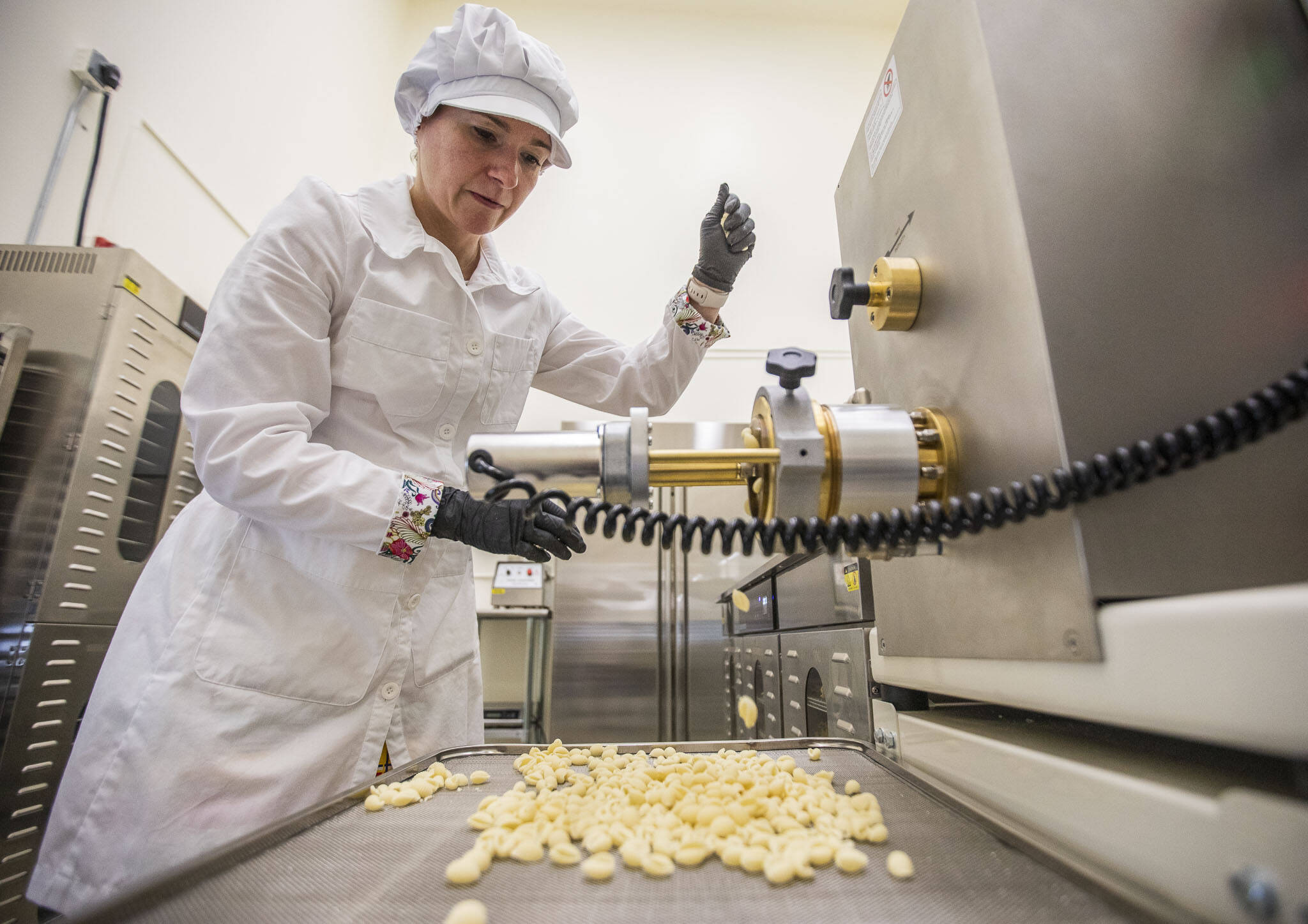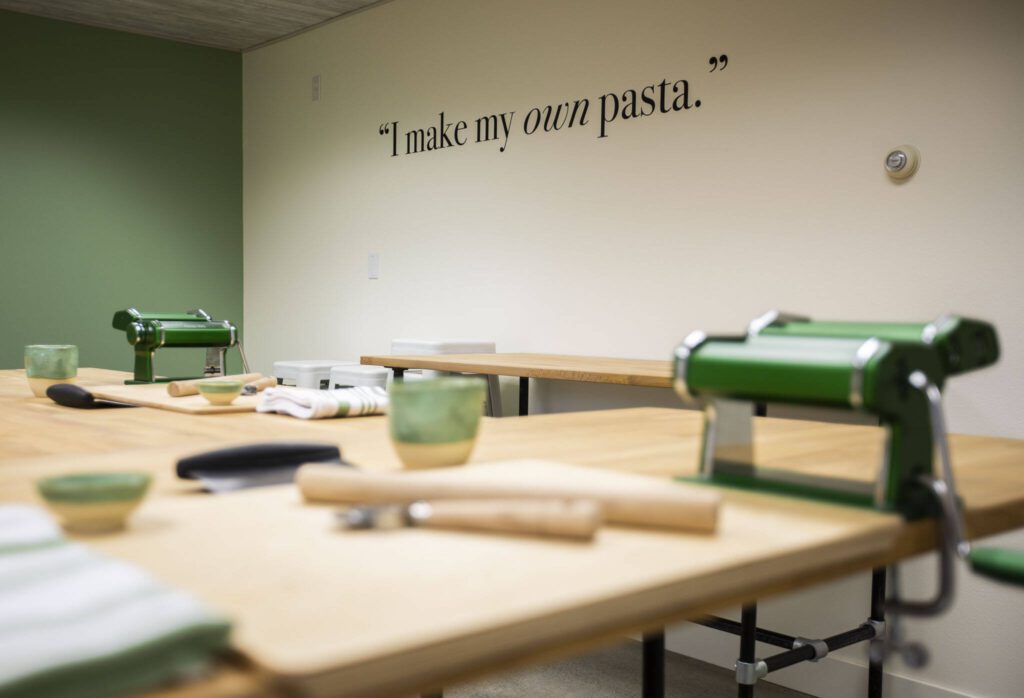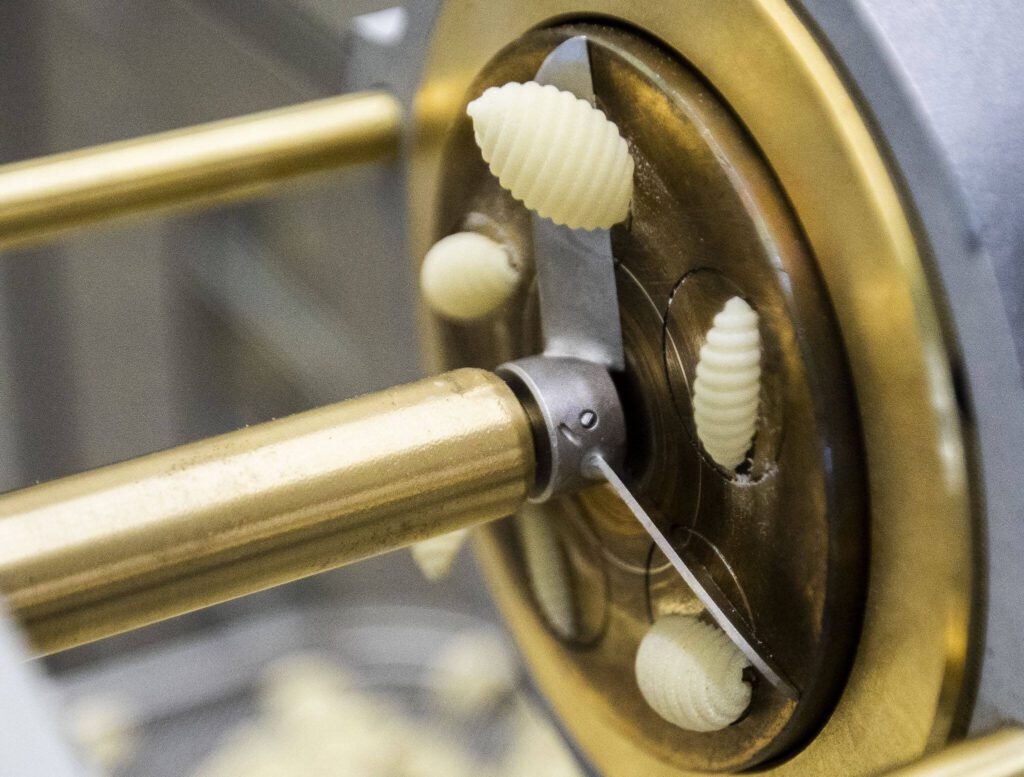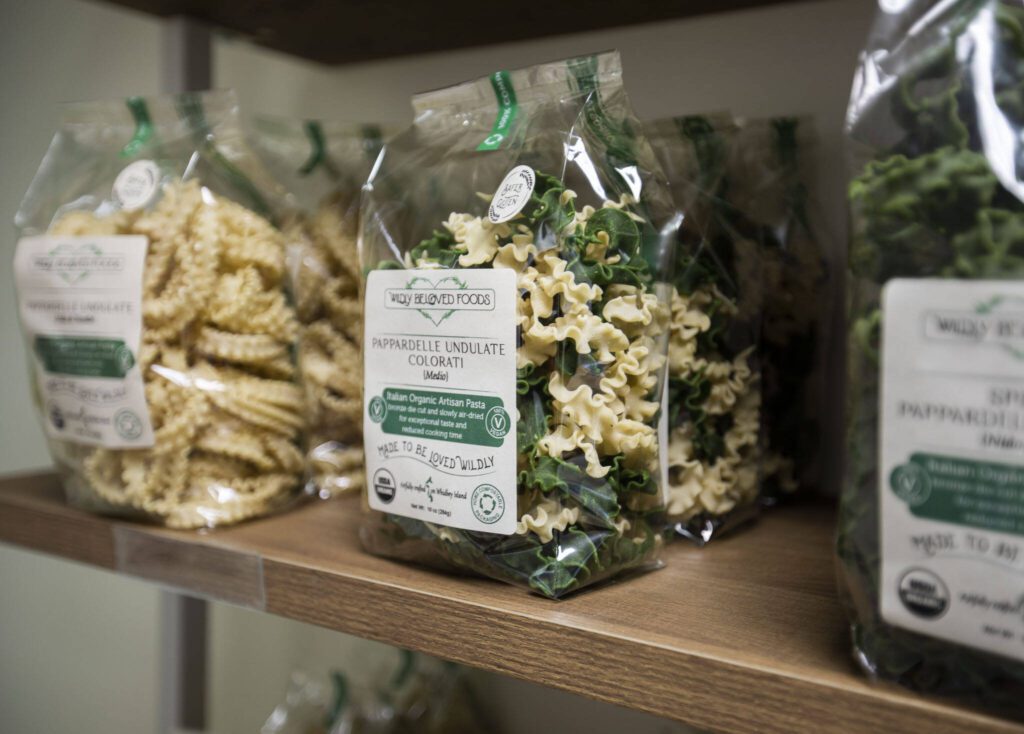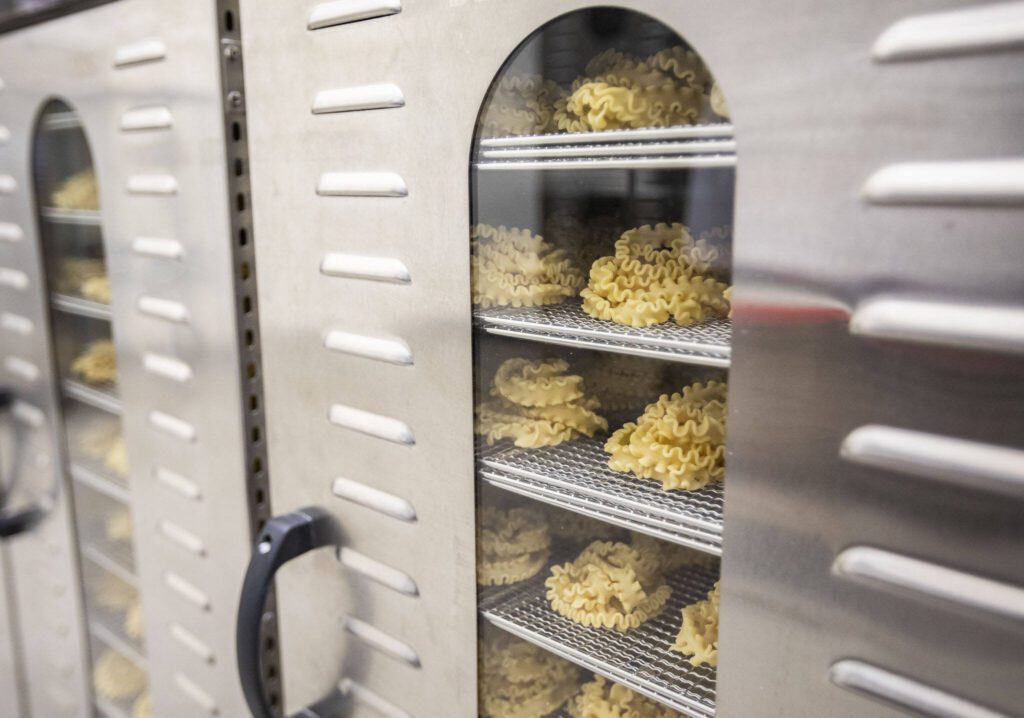CLINTON — Since 2009, Aurora Echo’s love language has been making pasta.
She gifted spinach fettucine for a friend’s birthday, brought lasagna to a family celebration and treated her daughters to tagliolini.
After getting divorced, Echo took the hazardous road of spinning her passion into a business.
On Christmas 2022, Echo tried out her new $14,000 PM 96 Bottene pasta machine.
For years, she’d only ever made flat pasta. As she turned the knot for the first time, Echo opened the doors to round, curly pasta.
“I was elated,” she said. “It was the best Christmas present.”
A year and a half later, Echo’s pasta, branded under Wildly Beloved Foods, has spread to a dozen grocery stores in Washington and beyond, to the Everett farmers market and, soon, PCC. Echo also hosts pasta-making workshops.
On a rainy Thursday morning, we visited Echo’s workshop and pasta factory, 500 feet off the Clinton ferry.
Guests are welcomed by a Bigolaro, a replica of a pasta machine patented in the 19th century. The cast-brass press is secured to a wooden bench where Echo sits to demonstrate.
“You would load your dough and then I tell people you get to work,” she said. “Once you get to the dough, you have to use all of your strength because you’re forcing it through the die on the bottom and then beautiful pasta falls into the bowl. So it really works. Isn’t that neat?”
Fresh, frozen and dried pasta is available in the fridge, shelves and freezer.
Echo’s workshop is beige, like her semolina and her egg pasta, and green, like her spinach pasta. Small pasta machines sit atop wooden counters. On the walls, a motto: “I make my own pasta.”
Her weekly and biweekly workshops come after years of teaching friends to make pasta, well before she started her business.
“Sharing food is so ancient; it feels so good,” she said. “It’s a beautiful way to bond with people. So it’s something I always did. And by creating a business around that, I get to share it with more people.”
Echo also sells the Italian Organic Semolina Flour she uses.
She long felt conflicted about using Molino Grassi flour from Parma, in northern Italy, rather than a local, probably cheaper, alternative.
That led her down a rabbit hole of flour economics.
The “product of Italy” pasta branding, she said, isn’t always what it seems.
“We export hundreds of thousands of tons of flour to Italy and there it’s made into pasta,” she said. “This is product of Italy.”
After testing about a dozen varieties, she concluded domestic flours “simply did not possess the utterly exceptional taste and texture.”
The flour she landed on led to a happy accidental consequence: Many gluten-sensitive customers can eat it with no problem.
That commitment to the best, at the expense of local growers, ruffled feathers. Some farmers markets don’t want to include vendors that don’t source locally.
Other pasta vendors also source semolina elsewhere, because it doesn’t grow well in Washington.
It’s about striking a balance, said Everett Farmers Market Director Gary Purves.
“We look at the whole product and not just the raw material,” he said. “How it’s being made, the fact that it’s organic, and she’s gone to great lengths to cover all of the bases: packaging … processing equipment, it’s just a much larger picture.”
Echo has never been to Italy, though she is excited to eventually go. She recently learned via an ancestry test that she is 1% Sicilian.
Managing a team
For Echo, one of the biggest challenges has been expanding from running everything on her own to leading an eight-person team.
She adheres to what she calls an “oppressive level of cleanliness and standards.”
Yet, so much of making food, especially at an artisanal-level, isn’t easy to teach.
For example, commercial pasta is dried for only a few hours at 280 degrees. Wildly Beloved pasta dries for about 16 hours.
But it’s still just an estimate.
Echo said she listens to the dough, a skill that has taken years to develop.
Recently, a former employee accidentally under-dried the pasta.
Because of the risk of mold, Echo had to issue a recall of 30 bags of pasta.
The risks were minimal and eliminated by cooking the pasta. And Echo hadn’t even sold two-thirds of the affected pasta.
Somehow, Newsweek thought it was newsworthy.
She tries to see the silver lining: Maybe any and all publicity is good.
Time to eat the pasta
After hearing about all this pasta politics, I was really looking forward to a taste test.
I chose a bit of everything: semolina pappardelle undulate, semolina tagliolini, and spinach bucatini and casarecce.
I chose the long, flat pappardelle. With the curled edges, I had a hunch they’d hold onto the sauce.
I enrolled other reporters to test out the other shapes.
The spinach pasta had limited success.
One reporter who shall remain nameless overcooked the pasta and didn’t enjoy it much. We’ll chalk that up to user error.
Reporter Andrea Brown volunteered to try the spinach casarecce.
The pasta reminded her of licorice rope. The texture was like licorice. The taste was like spinach licorice. Not a flavor coming to candy shelves anytime soon.
With garlic, lemon and pepper, it was filling and fulfilling. As good as red licorice, but oh-so different.
“I usually don’t like pasta that is green, but I’ve never met a licorice I didn’t like,” Brown concluded.
Her granddaughters were less positive.
“It tastes like normal pasta,” said her granddaughter, Mimi, 8. “And it tastes a little bit like green beans.”
Her 5-year-old sister, Aya, took one look at the bowl of green slimy things and said, “No way.”
Breaking news reporter Maya Tizon set crime aside to help me reach a verdict.
She made a quick dinner with Dan Pashman’s miso butter taglialine. Tizon described them as “fettuccine or linguini’s baby cousin.”
Tizon told me she preferred the thicker pasta. Indeed, that’s why I kept the pappardelle for myself.
“I never thought of mixing pasta and miso, but the flavor came out so beautifully,” she wrote. “Tasted very fresh. It’d be hard to eat box pasta after this.”
I tried the pappardelle with another Pashman recipe: Kimchi carbonara.
My mother-in-law, a retired judge, delivered her verdict: “Can I say it’s the best pasta I’ve ever had.”
To buy Wildly Beloved Foods pasta, head to wildlybelovedfoods.com. For example, 10 ounces of dried casarecce costs $12. Spinach fusilli will set you back $13.
Pastas can be picked up at Wildly Beloved’s factory at 6348 Frost Ave., Clinton. Products are usually ready in 2-4 days.
Aina de Lapparent Alvarez: 425-339-3449; aina.alvarez@heraldnet.com; Twitter: @Ainadla.
Talk to us
> Give us your news tips.
> Send us a letter to the editor.
> More Herald contact information.
